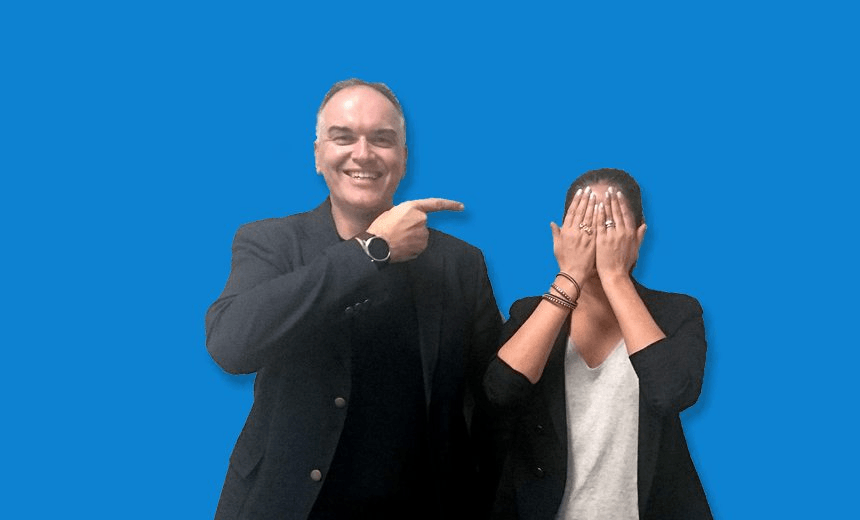Business is Boring is a weekly podcast series presented by The Spinoff in association with Callaghan Innovation. Host Simon Pound speaks with innovators and commentators focused on the future of New Zealand, with the interview available as both audio and a transcribed excerpt.
How do you grow a company overseas? Should you take the leap with your idea? How do you make a sale to a big company? In the case of PageProof, delivering on these questions relies on the founders getting amongst it and making it happen, backed of course by a great team.
Page Proof are a company offering an online tool to proof, track, and approve work across teams and companies, in a secure and professional manner. With workflows, to-dos, and encryption, it’s a tool companies around the world are loving. The founders, Gemma Hurst and Marcus Radich, talk on the podcast about how they took an idea and made it into a global company, and how it is that they grow their international markets. They’re fresh back from SaaStr, which they attended with Callaghan Innovation – and they also give us a debrief about what that conference offers SaaS companies and what they’ve taken from it.
Either download (right click to save), have a listen below, subscribe through iTunes (RSS feed) or read on for a transcribed excerpt.
Your biggest markets now are the States. How do you go about growing into the States? I love it when people say they’re going to go to the United States and it’s a big market. It’s not one market, is it? It’s a lot of different places.
MR: It’s 52 different countries. We used Google AdWords to kinda spray all over the world ‘here’s PageProof’. You see very quickly from the sign ups where the hot spots are, and then you start seeing companies sign up in France and Germany and the United States. For us particularly, it was the East Coast of the United States initially. We actually flew over last year to find out why the West Coast weren’t interested in what we were doing and we figured out there were just a few words that we had on our website made no sense. ‘Proof’ doesn’t work on the west coast of the United States, they talk about ‘review’. So we changed that and now the mix is even.
Isn’t that remarkable that a couple of words on your value prop on your website can position you out of a market?
GH: It’s amazing, and it’s the first thing we noticed when we got off the plane. Someone basically said ‘what do you guys do?’ And we gave them the elevator pitch and got completely blank looks. We were like ‘how are they not getting this?’ So it was a lot of wording, actually.
MR: But then one person in particular said ‘you mean review?’ and we went ‘…yes.’ Then the next time we pitched to somebody we replaced ‘proof’ with ‘review’ and they went ‘oh wow I get it.’
And there really is no replacing just going there and doing the hard yards.
GH: We might have discovered that [otherwise] but it would have taken us a long time. Whereas, to give you an example, one of the things that PageProof does is let you move your proof through different teams of people very easily. For example, you might have your piece of work that needs to go to marketing first, then sales team, then the legal team, then get signed off. And we call this ‘workflow’ but the west coast actually calls that ‘routing’. So we were like ‘what are they not getting? It’s a workflow, clearly! It looks like a lovely flow chart.’ No, they call it ‘review routing’ and that is the term of choice for agencies and also marketing departments.
Is it the SaaS model for the smaller companies and then it’s founders on the ground doing the sales for the bigger companies? What kinds of things work about managing to pull down a big customer? How do you get that growth?
MR: Booking a demo. Getting a customer to gather at their end, gather their team together, and then at your end, making sure the technology that does the screenshare or whatever it is you do to produce your demo, and do a live demo. Actually do a founder-driven live demo to show a team at the other end, across the world, how your product works and answer any questions live that they may have. Almost knock away those concerns that they might have as a group. You can almost feel it, like with PageProof, we can almost feel the people at the other end nodding and smiling and going ‘oh my god this completely solves the problem that we have.’ We have a 70% success rate on a live demo.


